Physical activity also keeps your elderly parent’s brain fit
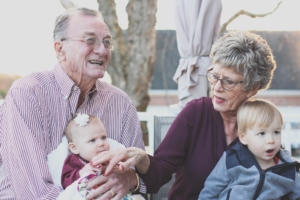 As your parents age, it’s still important for them to exercise. While many associate exercise with benefits to physical health, studies show it can also benefit us cognitively. A post at the New York Times describes several recent studies that outline the role exercise has in maintaining our brainpower.
As your parents age, it’s still important for them to exercise. While many associate exercise with benefits to physical health, studies show it can also benefit us cognitively. A post at the New York Times describes several recent studies that outline the role exercise has in maintaining our brainpower. 
Physical activity, any physical activity
Laura Middleton is an associate professor at the University of Waterloo in Ontario where one of the studies was conducted. She told the New York Times, “Our results indicate that vigorous exercise isn’t necessary [in protecting the mind]. I think that’s exciting. It might inspire people who would be intimidated about the idea of quote-unquote exercising to just get up and move.
The results of the study were found by measuring the energy expenditure and cognitive functioning of a large group of elderly adults over the course of two to five years, the newspaper reported. The physical activities of the group described to have the least cognitive impairment over the course of the study consisted of minor exercises like “walking around the block, cooking, gardening, and cleaning.” Nearly 90 percent of those with the greatest daily energy expenditure thought and remembered throughout the study just as well as they had in previous years.
Staving off dementia
The second study was conducted at Brigham and Women’s Hospital at Harvard Medical School. The senior author of the study was Jae H. Kang, assistant professor of medicine at the institution. This time physical activity was measured in women with vascular conditions. Kang told the Times that walking and light activity bought participants heading towards dementia five years of better brainpower.
Weight training and cognitive health
The third study mentioned in the Times article might mean that there’s another option besides walking and gardening to help cognitive health as we age: weight training. Scientists from the Aging, Mobility and Cognitive Neuroscience Laboratory at the University of British Columbia and other institutions found that light weight training changed how well older women thought and even changed how blood flowed within their brains.
The study participants incorporated lifting weights twice a week for 12 months. At the end of that period they performed markedly better on tests of mental processing than control groups who only completed balance and toning training programs. M.R.I. scans of the weight trainers showed that the parts of their brains in charge of mental processing were considerably more active compared to the control group.
So in short, get your parents off the sofa and out for a walk — it’ll not only help them maintain their physical independence, but their cognitive well-being as well.
Physicians Choice Private Duty currently serving Omaha, Eastern Nebraska and Western Iowa ” provides seniors and their families a complete understanding of the available care options and helps families maneuver through the challenges of the system. All Physicians Choice Private Duty services are directed by registered nurses or social workers with no long-term contracts. Contact us today for help with your senior care needs.
“Physicians Choice Private Duty solves the challenges families face in caring for aging parents, with a focus on strategies that keep them in their homes. To learn more about our solutions, visit https://private-duty.pchhc.com/services/ today..”

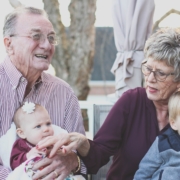

 Today’s post features two real-life stories of how Physicians Choice Private Duty helped an elderly person and their family through a tough decision-making process that ensured each person’s individual care needs were met. Names have been changed to respect privacy.
Today’s post features two real-life stories of how Physicians Choice Private Duty helped an elderly person and their family through a tough decision-making process that ensured each person’s individual care needs were met. Names have been changed to respect privacy.
 The answer to getting your elderly parent
The answer to getting your elderly parent 
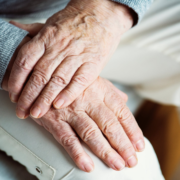
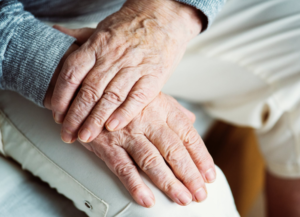 It can be hard for those who don’t suffer from arthritis to understand the pain that arthritis can cause. Severe arthritis can have near debilitating effects. Gaining a greater understanding of arthritis and the pain associated with it can better prepare you to care for an elderly parent with arthritis.
It can be hard for those who don’t suffer from arthritis to understand the pain that arthritis can cause. Severe arthritis can have near debilitating effects. Gaining a greater understanding of arthritis and the pain associated with it can better prepare you to care for an elderly parent with arthritis. 

 The Omaha World-Herald
The Omaha World-Herald 
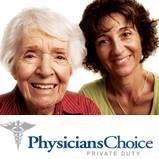
 Have you selected your nursing home yet?
Have you selected your nursing home yet?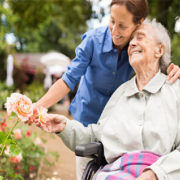
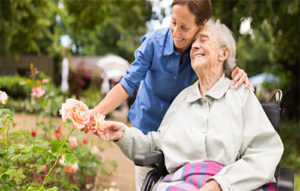 Earlier this month, the American Association of Retired Persons (AARP) joined forces with the Ad Council to make a series of public service announcements depicting common, frustrating scenarios in the lives of millions of caregivers in the United States. As we’ve mentioned before, taking care of an aging loved can be very stressful, especially while balancing caregiving with day-to-day obligations such as working a full time job and taking care of children.
Earlier this month, the American Association of Retired Persons (AARP) joined forces with the Ad Council to make a series of public service announcements depicting common, frustrating scenarios in the lives of millions of caregivers in the United States. As we’ve mentioned before, taking care of an aging loved can be very stressful, especially while balancing caregiving with day-to-day obligations such as working a full time job and taking care of children.
 As someone providing support for an elderly parent, AgingCare.com offers some helpful advice on
As someone providing support for an elderly parent, AgingCare.com offers some helpful advice on 
 Iron imbalances — either too much or too little — in the elderly can cause numerous problems. While many may assume that these imbalances involve a deficiency, it’s more likely in Westernized societies that the imbalance will involve too much iron.
Iron imbalances — either too much or too little — in the elderly can cause numerous problems. While many may assume that these imbalances involve a deficiency, it’s more likely in Westernized societies that the imbalance will involve too much iron.
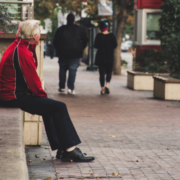
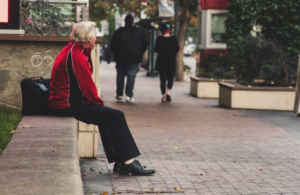 Feeling isolated and alone can be difficult to handle at any age, but the problem is compounded with the elderly because it can lead to health concerns such as loss of physical functioning and even early death.
Feeling isolated and alone can be difficult to handle at any age, but the problem is compounded with the elderly because it can lead to health concerns such as loss of physical functioning and even early death. 